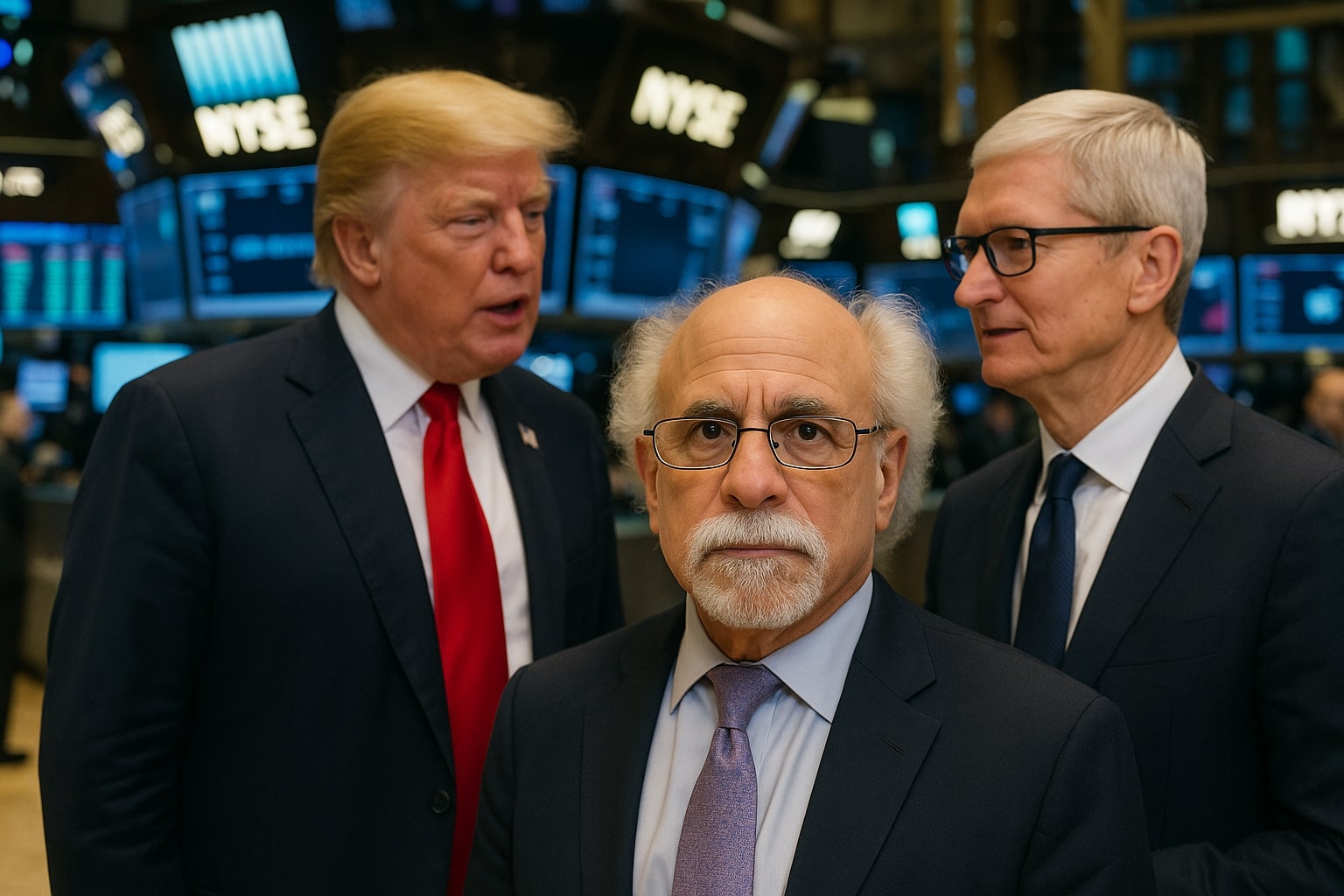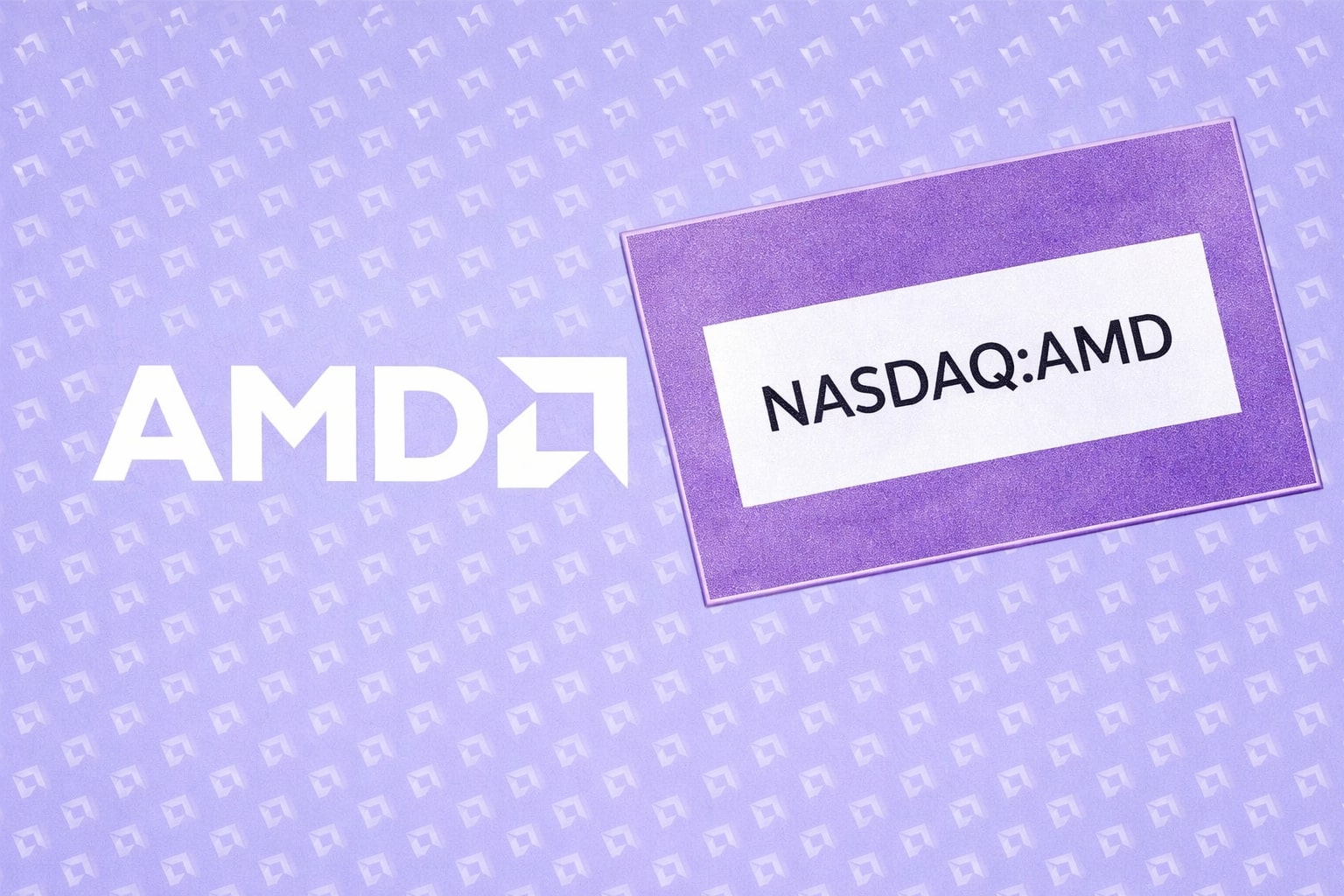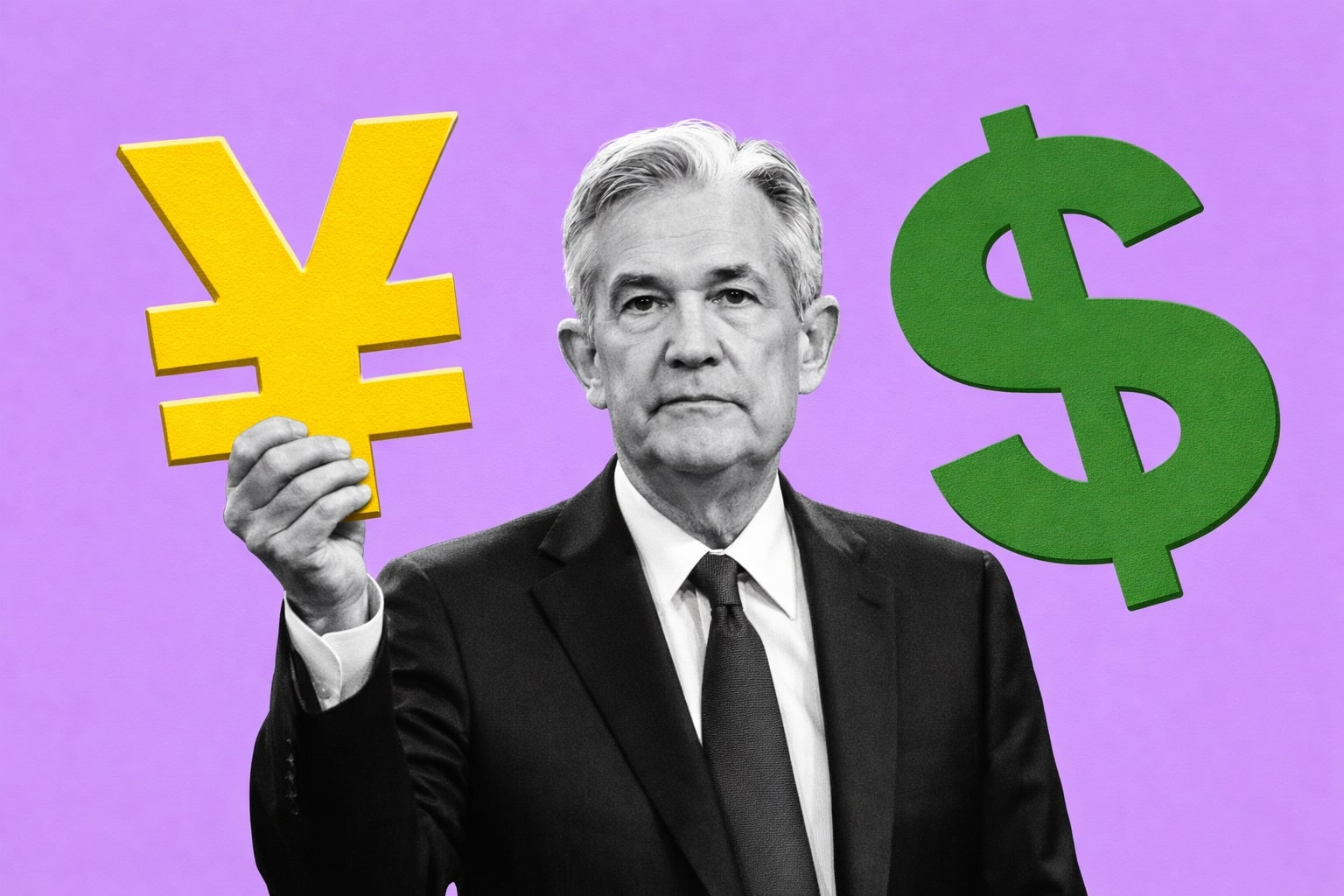The Impact of Trump's Tariff Threats on the Stock Market: A Closer Look at Key Indices and Stocks
The stock market experienced significant turbulence this week as President Donald Trump's tariff threats added uncertainty to an already volatile market. As of Friday, May 23, 2025, all major indices, including the Dow Jones Industrial Average (DJI), S&P 500 (GSPC), and Nasdaq Composite (IXIC), posted declines, reflecting the market's reaction to the latest trade-related developments.
Dow Jones and S&P 500 Face Pressure Amid Trade Fears
The Dow Jones Industrial Average closed down 0.61%, losing 256.02 points to finish at 41,603.07. The S&P 500 also struggled, dropping 0.67% and closing at 5,802.82. The Nasdaq Composite, heavily influenced by tech stocks, fell by 1%, closing at 18,737.21. The sharp declines followed President Trump's renewed threat of tariffs, particularly targeting Apple (AAPL) and imports from the European Union.
These declines reflect broader market sentiment, which has been fluctuating due to fears that the trade conflict with the EU could escalate. The Nasdaq, in particular, saw pressure from the tech-heavy sectors, as Apple Inc. (AAPL) saw a notable 3% drop after Trump announced that iPhones sold in the U.S. but manufactured outside the country would be subject to a 25% tariff. This policy, if enacted, could impact other major electronics manufacturers like Samsung and any other companies producing smartphones abroad.
Apple (AAPL): A Target of Trump's Tariff Strategy
Apple's stock has been significantly affected by Trump's tariff threats. The tech giant's shares fell to $195.27, a 3.02% drop, bringing its market cap below the $3 trillion threshold. Trump's social media post highlighted that unless Apple shifts its production to the U.S., it would be subject to the 25% tariff on iPhones sold in America. This marks a new twist in the ongoing trade tensions, with Apple being the first specific company targeted by Trump's tariff actions this year.
Tariff Impact on U.S. Steel (X): A 21% Surge Following Trump’s Partnership Announcement
On a more positive note for certain sectors, U.S. Steel (X) saw a significant surge of 21.24%, closing at $52.01 after Trump announced a new partnership between the company and Nippon Steel. This partnership is expected to add at least $14 billion to the U.S. economy and create around 70,000 jobs, providing a positive outlook for the steel industry amid ongoing tariff negotiations. The announcement marked a stark contrast to the broader market declines, showing how specific sectors could benefit from Trump's trade policies.
Nasdaq's Heavy Hit: Nvidia (NVDA) and the Ripple Effect
Nvidia (NVDA), a key player in the semiconductor industry, also faced pressure, reflecting the broader market sentiment. The stock closed at $131.29, a 1.16% decline, with analysts eagerly awaiting its earnings report. The company’s dependence on AI-driven demand is crucial, and Nvidia's performance will have a significant impact on the Nasdaq in the coming weeks. As the Nasdaq fell 1%, Nvidia's struggles in the face of tariff uncertainty are likely to weigh on the broader tech sector.
In contrast, Taiwan Semiconductor Manufacturing Company (TSMC) saw a 1.1% drop, closing at $192.04. Despite these challenges, Nvidia and TSMC remain crucial players in the AI and semiconductor sectors, with their earnings reports expected to provide insights into how tariffs are affecting production costs and global supply chains.
S&P 500 Sectors: Energy and Technology Underperform
The broader market showed weakness across various sectors. The energy sector was hit the hardest, dropping 4.8%, reflecting the market's reaction to rising concerns about economic slowdowns due to the ongoing tariff threats. The communication services sector also slid by 0.3% for the week, showing broader market weakness despite some individual stock performances, like those of Intuit (INTU), which posted a 7.5% gain.
Growth Stocks and ETFs: Volatility in the Wake of Trade Fears
Nvidia (NVDA), a key growth stock, showed resilience despite the market-wide declines, with many investors continuing to watch its upcoming earnings report. However, the VanEck Vectors Semiconductor ETF (SMH), which holds significant positions in companies like Broadcom (AVGO) and Taiwan Semiconductor (TSMC), dropped 3.6%, reflecting broader sectoral struggles under the weight of escalating trade fears. The ARK Innovation ETF (ARKK) also fell by 4% as investors took a cautious stance on tech growth amid uncertainty over tariffs and regulatory concerns.
Tesla (TSLA): Struggling Amid Broader Market Concerns
Tesla (TSLA) saw its stock fall by 3%, closing at $339.34. While Tesla continues to innovate with its electric vehicle offerings and self-driving technology, the broader trade war and concerns over regulatory risks have clouded investor sentiment. The company's valuation is under pressure as traders anticipate impacts from potential tariff hikes on tech and energy sectors, especially if they affect Tesla's manufacturing costs and global operations.
Apple and Broader Tech: The Ongoing Battle with Tariffs
The Nasdaq and S&P 500 will continue to be influenced by the ongoing tariff discussions between the U.S. and Europe, particularly with the Apple tariff threat looming. The market's response to these tariffs has created uncertainty, with some analysts predicting a continuation of volatility. With Apple facing the brunt of this policy shift, it remains to be seen how other major tech stocks will navigate this environment, as global supply chains continue to adapt.
Looking Ahead: The Impact of Trade War on U.S. Markets
As U.S. Steel and other sectors like solar energy see volatility from Trump’s tariffs, investors are watching closely for further developments. Analysts, like Rick Wedell from RFG Advisory, warn that these trade issues may persist through the duration of Trump's second term. With trade discussions still up in the air, the markets may experience further volatility.
The uncertainty surrounding tariffs, alongside rising interest rates, makes predicting future market movements increasingly difficult. Stocks in the S&P 500 and Nasdaq will likely continue to react to any new developments in U.S. trade policy, as investors reassess their strategies in this unpredictable environment.



















